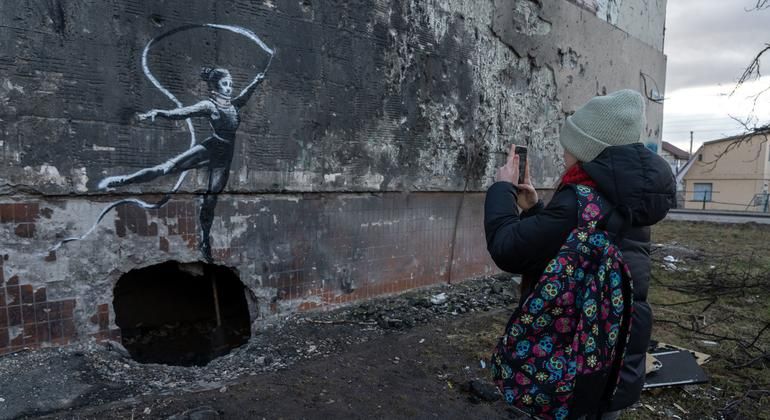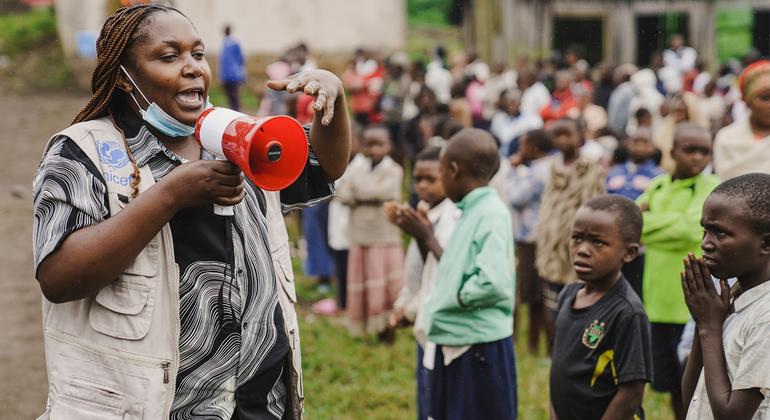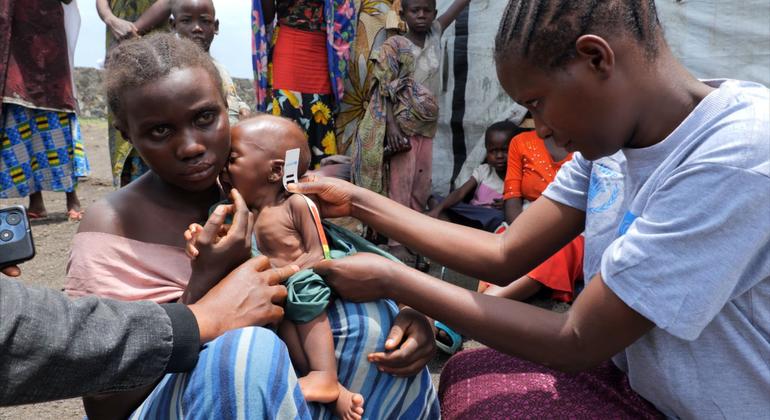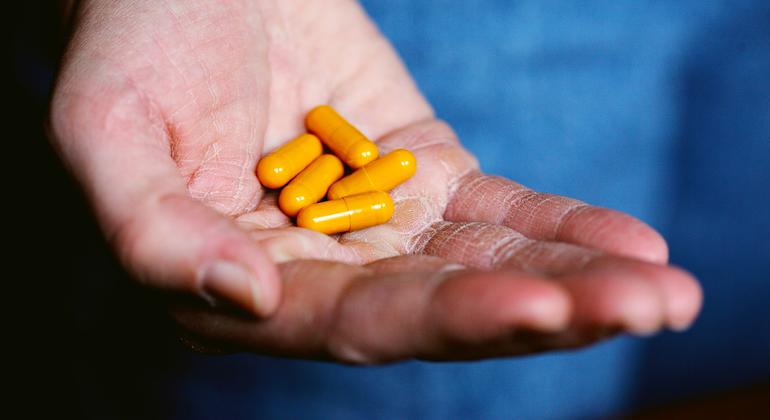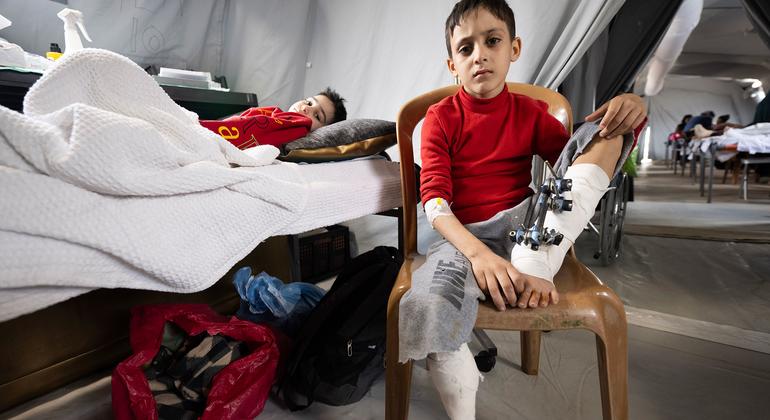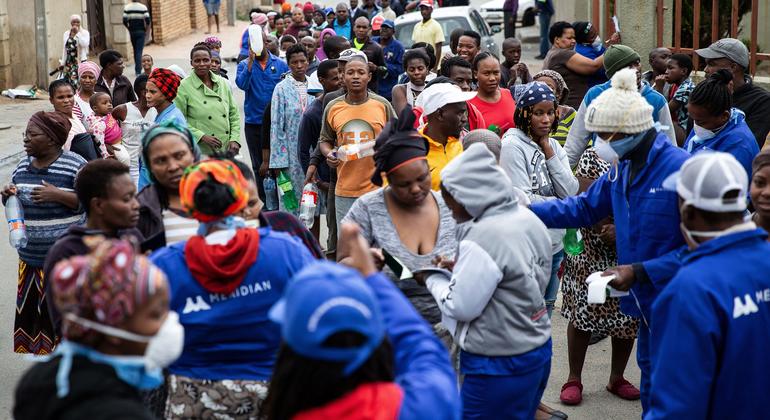WHO Director-General Tedros Adhanom Ghebreyesus said that failure to address adolescent mental, sexual and reproductive health will have “serious and potentially life-threatening consequences for young people.” It will also come at a huge cost to society, justifying significant public investment by governments around the world.
Tedros noted that anaemia among adolescent girls remains “prevalent” and at levels similar to those in 2010, while nearly one in ten adolescent girls is obese.
Sexually transmitted diseases on the rise
Sexually transmitted infections (STIs), including syphilis, chlamydia, trichomoniasis and genital herpes, which are common among young people, are also on the rise.
If left untreated, they could have “lifelong health consequences,” the WHO chief said, citing new data.
Tedros also spoke out against attempts to “reduce” young people’s access to sexual and reproductive health care and sex education in response to growing opposition to gender equality and human rights.
She said any restrictive age of consent policy limits young people's access to critical services, including those for sexually transmitted infections and HIV.
Adolescence is a unique and critical stage of human development, involving important physical, emotional and social transitions, and is a crucial window for laying the foundations for long-term good health, says WHO.
“Promoting and protecting the health and rights of young people is essential to building a better future for our world,” Tedros said.
“On the contrary, failing to address the health threats facing adolescents – some of them long-standing, others emerging – will not only have serious and potentially deadly consequences for young people themselves, but will create spiraling economic costs.”
Earnings are possible
The publication was launched at a side event of the United Nations Future Summit.
“Adolescents are powerful and incredibly creative forces for good when they are able to shape the agenda for their well-being and future,” said Rajat Khosla, executive director of the Alliance for Maternal, Newborn and Child Health, which co-sponsored the launch.
“Leaders must listen to what young people want and ensure that they are active partners and decision-makers,” he added.
Russia's indigenous peoples face 'extinction' over Ukraine mobilisation
Russia's indigenous people face “extinction” because they have been subjected to “massive” mobilization to fight in the war in Ukraine, a leading independent human rights expert said on Monday.
The Special Rapporteur on the situation of human rights in Russia, Mariana Katzarova, said that most of the mobilization of minority communities had been forced.
“The mobilization of indigenous peoples, particularly from small nations, is massive, and the mortality rate is enormous, threatening them with extinction,” he said, citing data from civil society.
“There are almost no Slavic faces” on the front
The independent human rights expert, who does not work for the UN nor receive a salary from the Organization, said that following Russia's large-scale invasion of Ukraine in February 2022, she saw “almost no Slavic faces” in the images transmitted from the front, but rather those of Russia's ethnic peoples.
“It was the Buryats, it was the Kalmyks, it was the Chechens, it was the national minorities of Russia,” he insisted.
Speaking in Geneva, Ms Katzarova said Russian authorities had gone to “far-flung places” in the country to find recruits for the war.
“The mobilization has not been so brutal in Moscow and St. Petersburg… They are the most sophisticated places where people know their rights.
“But when you travel by train 160 kilometres from Moscow and St. Petersburg, and even more so in the remote regions of Siberia… people don’t even feel they have a choice. They don’t even know their rights.”
The independent human rights expert said she had documented cases where the military had gone “door to door” in their search for soldiers and “simply removed the men from indigenous villages”.
Ms Katzarova is due to present her report to the Human Rights Council on Tuesday.
Belarusian authorities are cracking down on “all avenues of dissent,” says UN Human Rights Council
Serious violations of the rights of civil society and government critics continue in Belarus, the UN Human Rights Council heard on Monday.
Appointed by the Council in Geneva, the Group of Independent Experts on Belarus highlighted numerous serious abuses related to protests over the disputed re-election of President Alexander Lukashenko in 2020.
These include deaths, torture, gender-based violence and denial of the right to a fair trial, said Karinna Moskalenko, chair of the panel of independent experts.
Climate of fear
According to her, the government “continues to instill a widespread climate of fear by repressing all avenues of dissent, including in the digital space. New electronic intelligence teams appear to have been sought to increase monitoring of online activities, ahead of the presidential elections.”
Ms Moskalenko, who as an independent expert does not work for the UN, also said that President Lukashenko's government was “responsible for the almost total destruction of civic space and fundamental freedoms in Belarus”.
Most of those opposed to the authorities have been “imprisoned or forced into exile since the 2020 elections,” he said.

